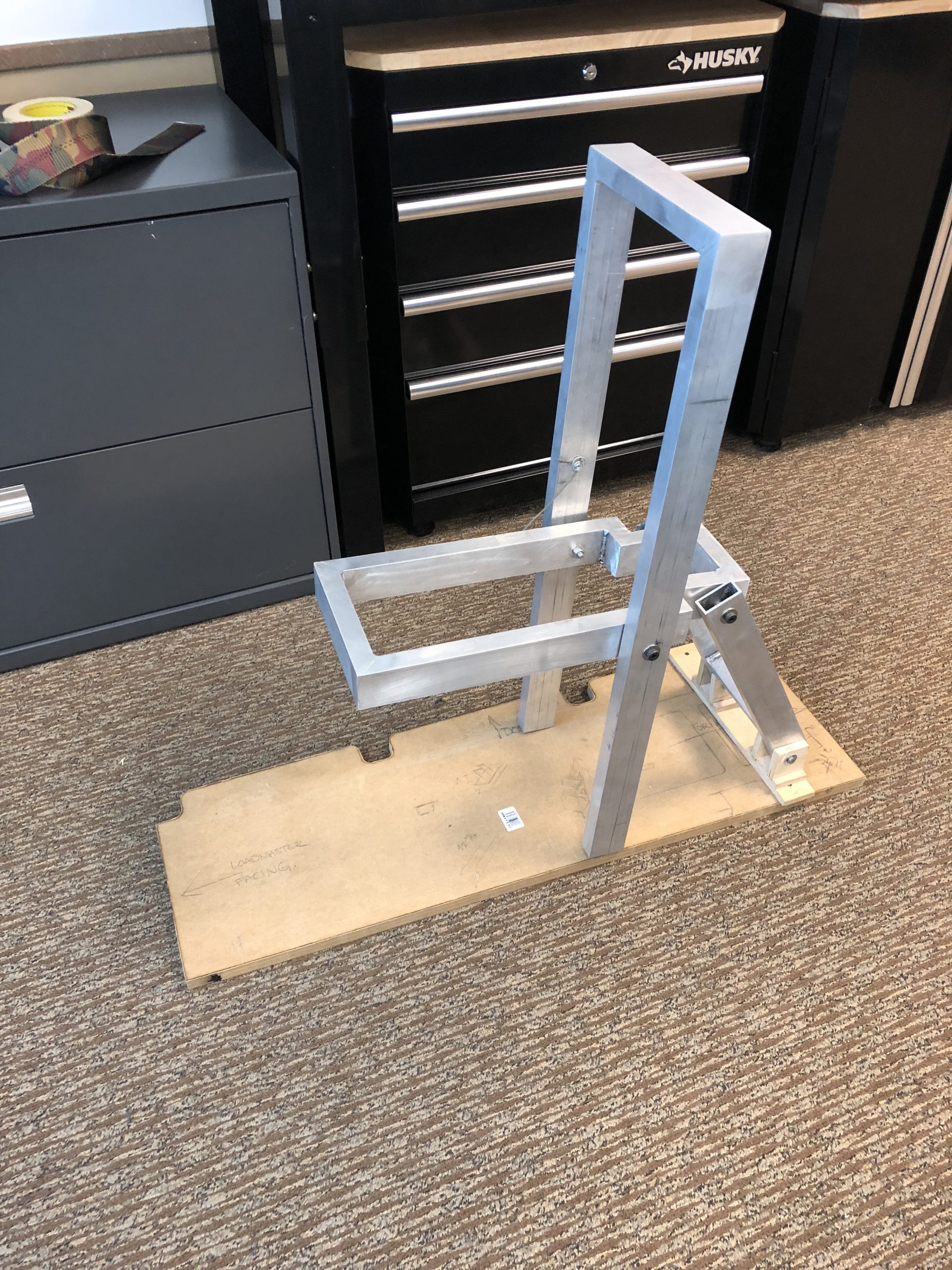WRIGHT-PATTERSON AIR FORCE BASE, Ohio – An aircraft seat may seem inconsequential, but when a simple seat can enhance the safety and well-being of a flight crew, it can be a very big deal.
Researchers from the Air Force Research Laboratory Materials and Manufacturing Directorate are leading a design and prototyping effort to ensure C-5M Super Galaxy flight crew members are able to execute a mission-essential task safely and comfortably. And it all centers on a seat.
Often, during C-5 aircraft flight operations, one crew member’s flight safety duties require bending or crouching for long periods of time, a potentially hazardous task, especially if the aircraft is required to perform quick, evasive maneuvers.
In an effort to ease the burden and make this job easier and safer, personnel from Phoenix SPARK, a grassroots innovation group based at Travis Air Force Base, California, reached out to the AFRL Small Business office, who then connected them to the Junior Force Warfighters Operations in RX, or JFWORX, team. Leaping into action, the JFWORX personnel, headed by AFRL engineer JD Bales, traveled to Travis to get a good look at a C-5 and offer assistance.
There, Bales and the team, along with personnel from the Wright Brothers Institute, boarded a C-5 to view the area in question, take 3-D scans, and look for features on the aircraft that they could use to their advantage when crafting designs. They noted spaces where units could be kept for easy storage and retrieval. They also discussed relevant needs, requirements, and constraints with C-5 loadmasters from the 60th Air Mobility Wing and brainstormed some initial ideas.
“We went over a couple of different solutions that we thought could work with the loadmasters on site, and then came back and met as a team to brainstorm on how to proceed and build some prototypes for testing,” said Bales.
He explained that the JFWORX team’s goal was to design a seat or a similar support device that would enable C-5 crew members to take the weight off their legs as they were performing their duties. However, this task wasn’t as easy as it may seem on the surface. A number of factors had to be taken into account. First, it needed to be small enough to fit within the observation area without getting in the way of other crew activities. Second, it had to be easily storable when not in use. Third, it needed to be something the crews could disengage from quickly. Bales explained that the reason for this requirement is that the crew member must stay in position until immediately prior to landing, leaving little time to exit the observation area and safely strap into a permanent aircraft seat.
Once the team had a firm idea as to how they wanted to approach the task, they set to work on their designs by developing drawings, analyzing space requirements, and beginning construction along with personnel from the AFRL Maker Hub at the Wright Brothers Institute Tec^Edge Innovation and Collaboration Center. With an eye toward rapid innovation, the JFWORX team emerged with two initial prototypes within the span of about three weeks.
Project manager 1st Lt. Garrett Benner described the two concept prototypes and the considerations behind each. The first is a compact and lightweight folding chair that the team constructed with the assistance of Maker Hub personnel.
“It’s a compact seat that they can fold up and set aside when not needed, and securely clamp in front of the observation area when they do, so that they can have a place to sit down,” Benner said.
The second concept is a fabric sling that crew members can use to take the weight off their legs as they’re looking out the aircraft.
“The sling prototype is made of a padded vinyl seat attached to adjustable length polyester webbing with two points where it can be quickly and easily attached to the inside of the aircraft,” Benner said. “It’s something than can be rolled up for easy storage.”
Bales said the team’s next step is to present the initial prototypes to the loadmasters from the 60th Air Mobility Wing, who will provide their assessment and evaluate for form, fit, and function. Once the JFWORX team has collected their input and recommendations, they will further refine the designs.
Once the final design is selected, the JFWORX team will work with Travis personnel to transition the design. Bales said this support could include continuing to modify and tweak the design, finding manufacturers who could produce the units in larger quantities, or simply providing the final prototype unit and engineering drawings with enough detail to allow the seats to be made on site.
Bales added that after the project is completed, AFRL can continue to provide assistance in terms of product support. “AFRL owns the technical baseline. We have all the specifications and can speak to the origin of those specifications if a change is desired.”
According to Bales, working with the SPARK Innovation Cells that are emerging at various Air Force bases has been a rewarding experience, leading to many potential avenues for collaboration.
“We stay in close contact with the SPARKs to talk about projects we can take on to fit user needs. It fits with our mission of providing near-term, low-cost solutions for warfighter needs.”

